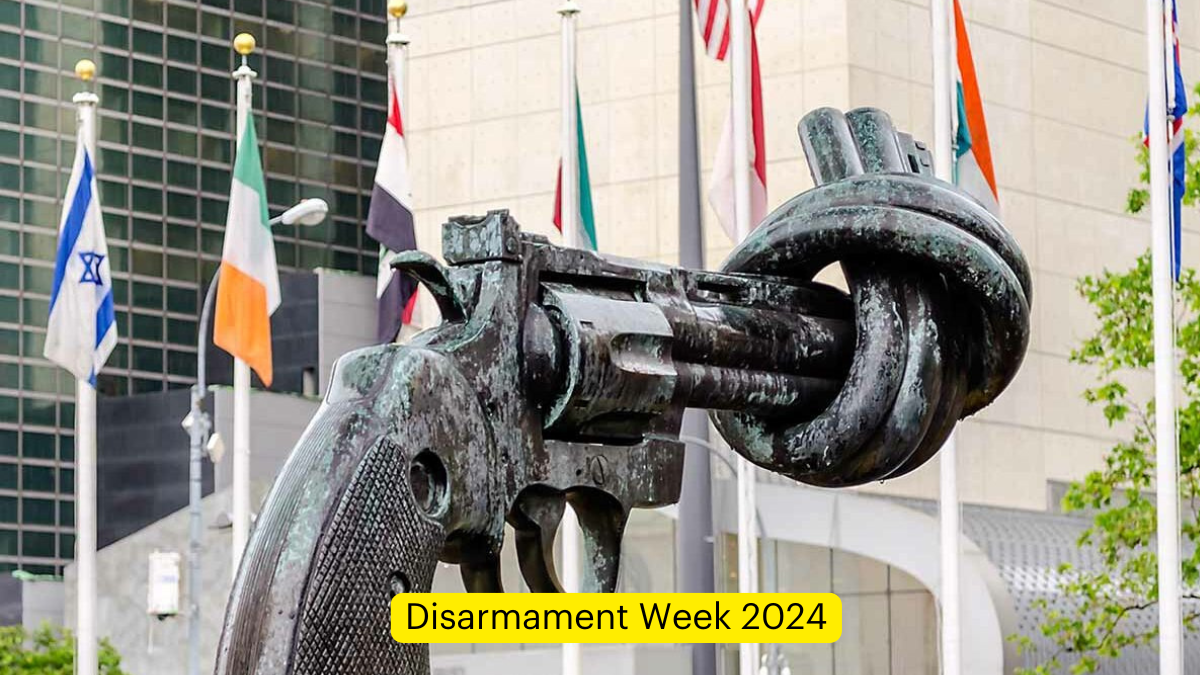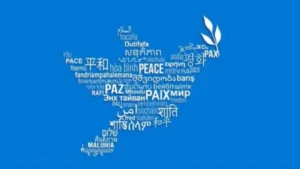Disarmament Week, starting annually on October 24, coincides with the anniversary of the founding of the United Nations. The week-long observance is dedicated to raising awareness about the importance of disarmament and promoting international dialogue to reduce the spread and impact of weapons. It was first called for in the Final Document of the UN General Assembly’s 1978 Special Session on Disarmament (resolution S-10/2) and reinforced in 1995 by the General Assembly’s invitation (resolution 50/72 B, 12 December 1995) to governments and NGOs to actively participate.
History and Significance of Disarmament Efforts
Since the formation of the United Nations in 1945, disarmament has been a cornerstone of the international community’s efforts to build a safer and more secure world. Disarmament initiatives have played an essential role in preventing armed conflict and fostering global peace. Countries around the world have pursued disarmament to limit the destructive capabilities of both weapons of mass destruction (WMDs) and conventional arms.
Disarmament measures are not only about reducing the number of weapons but also about addressing the underlying issues of international security and conflict resolution. As tensions between nations rise, it is vital that diplomacy, negotiation, and political dialogue take precedence over the accumulation of arms.
Focus on Weapons of Mass Destruction and Conventional Arms
Weapons of mass destruction—especially nuclear weapons—are of primary concern in the global disarmament conversation. Their immense destructive power and the catastrophic consequences they pose to humanity make nuclear disarmament a top priority for the international community. Numerous treaties and international agreements, such as the Non-Proliferation Treaty (NPT) and the Comprehensive Nuclear-Test-Ban Treaty (CTBT), aim to curb the spread and testing of nuclear weapons. However, the threat persists as some nations continue to develop or modernize their nuclear arsenals.
In addition to nuclear weapons, the excessive accumulation and illicit trade of conventional arms—such as small arms, light weapons, and heavy weaponry—remain significant threats to international peace, security, and sustainable development. The unregulated flow of conventional arms into conflict zones exacerbates violence, endangers civilians, and destabilizes regions. The use of heavy conventional weapons in populated areas has led to countless civilian casualties and the destruction of infrastructure.
Emerging Weapon Technologies: A New Global Concern
The rapid development of new weapon technologies, such as autonomous weapons systems (commonly referred to as “killer robots”), has added a new layer of complexity to the global disarmament agenda. These technologies pose unique challenges, as they have the potential to operate independently of human control and are designed for warfare applications. The ethical and security implications of such weapons have prompted increased attention from the international community.
In recent years, the United Nations has called for international norms to regulate the use of lethal autonomous weapons and cyberwarfare technologies that have the potential to disrupt global security. As warfare becomes increasingly technological, the traditional frameworks for arms control and disarmament are being tested in unprecedented ways.
Goals and Importance of Disarmament Measures
Disarmament efforts are pursued for various reasons, including:
- Maintaining international peace and security: By reducing the number of weapons in circulation, nations can mitigate the risk of conflicts escalating into armed confrontations.
- Upholding humanitarian principles: The use of WMDs and excessive conventional arms poses a severe threat to civilian populations. Disarmament measures aim to protect civilians and prevent mass casualties.
- Promoting sustainable development: Resources that would otherwise be spent on arms production can be redirected towards economic development, healthcare, and education, contributing to the United Nations’ Sustainable Development Goals (SDGs).
- Building trust and confidence: Disarmament fosters cooperation among nations, improving transparency and confidence-building measures in international relations.
- Preventing and ending armed conflicts: Reducing the availability of arms can limit the intensity of conflicts and pave the way for peaceful resolutions through diplomacy.
Disarmament and arms control are essential for ensuring both international security and human security in the 21st century. These efforts help prevent the proliferation of weapons, reduce military expenditures, and create a safer world for future generations.
United Nations’ Role in Global Disarmament Efforts
The United Nations has been at the forefront of global disarmament efforts since its inception. Through various treaties, conventions, and resolutions, the UN has worked to prevent the spread of WMDs and regulate conventional arms. The UN also supports peace-building initiatives and non-proliferation efforts in conflict-affected regions.
One of the most important aspects of the UN’s disarmament agenda is its focus on non-proliferation and the elimination of nuclear weapons. United Nations Secretary-General António Guterres has consistently advocated for a world free of nuclear weapons. In his “New Agenda for Disarmament,” Guterres called for renewed commitment to disarmament efforts in order to:
- Save humanity from the existential threat posed by nuclear weapons.
- Save lives by reducing the impact of conventional weapons on civilians.
- Secure our common future by addressing emerging technologies that could lead to destabilizing new forms of warfare.
Guterres’ disarmament agenda aims to protect civilians in armed conflicts, reduce human suffering, and promote a future based on peace and cooperation.
Challenges and Future of Disarmament
While progress has been made in areas like nuclear non-proliferation, there are still significant challenges to achieving comprehensive global disarmament. The ongoing modernization of nuclear arsenals by certain nations, the proliferation of conventional arms, and the development of new warfare technologies present considerable obstacles.
The path toward a world free of nuclear weapons and excessive armaments requires sustained diplomatic efforts, increased international cooperation, and a commitment to multilateralism. Additionally, the role of civil society, non-governmental organizations (NGOs), and grassroots movements is crucial in advocating for disarmament and raising awareness about its importance.




 International Mother Language Day 2026: ...
International Mother Language Day 2026: ...
 Arunachal Pradesh Foundation Day 2026: P...
Arunachal Pradesh Foundation Day 2026: P...
 Mizoram Foundation Day: A Tribute to Cul...
Mizoram Foundation Day: A Tribute to Cul...








